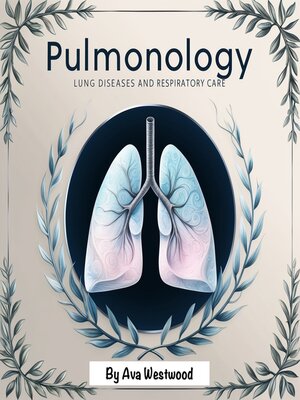
Sign up to save your library
With an OverDrive account, you can save your favorite libraries for at-a-glance information about availability. Find out more about OverDrive accounts.
Find this title in Libby, the library reading app by OverDrive.



Search for a digital library with this title
Title found at these libraries:
| Library Name | Distance |
|---|---|
| Loading... |
Pulmonology is a branch of medicine that focuses on the diagnosis, treatment, and prevention of diseases affecting the respiratory system. The respiratory system, comprising the lungs, airways, and associated structures, is vital for the process of respiration, which allows the body to exchange oxygen and carbon dioxide. Pulmonology addresses a broad range of conditions, from common ailments like asthma and chronic obstructive pulmonary disease (COPD) to more complex disorders such as lung cancer, pulmonary hypertension, and interstitial lung disease. This field plays a critical role in ensuring optimal lung health and preventing the potentially debilitating effects of respiratory conditions.
The importance of pulmonology has grown significantly in recent years due to the increasing prevalence of respiratory diseases worldwide. Factors such as air pollution, smoking, and the global rise in respiratory infections have contributed to the heightened demand for specialized care in pulmonology. Chronic respiratory diseases, such as asthma and COPD, are among the leading causes of morbidity and mortality globally. Early diagnosis, effective treatment, and ongoing management are key to improving quality of life and reducing the burden of these diseases on patients and healthcare systems.
Pulmonologists are medical professionals who specialize in diagnosing and treating respiratory diseases. They are trained to perform a variety of diagnostic procedures, including pulmonary function tests, imaging studies, and bronchoscopy, to assess lung function and identify underlying conditions. Pulmonologists also manage respiratory diseases through a combination of pharmacological treatments, lifestyle modifications, and, in some cases, surgical interventions. They work closely with other healthcare providers, including primary care physicians, oncologists, and thoracic surgeons, to deliver comprehensive care for patients with complex respiratory conditions.







